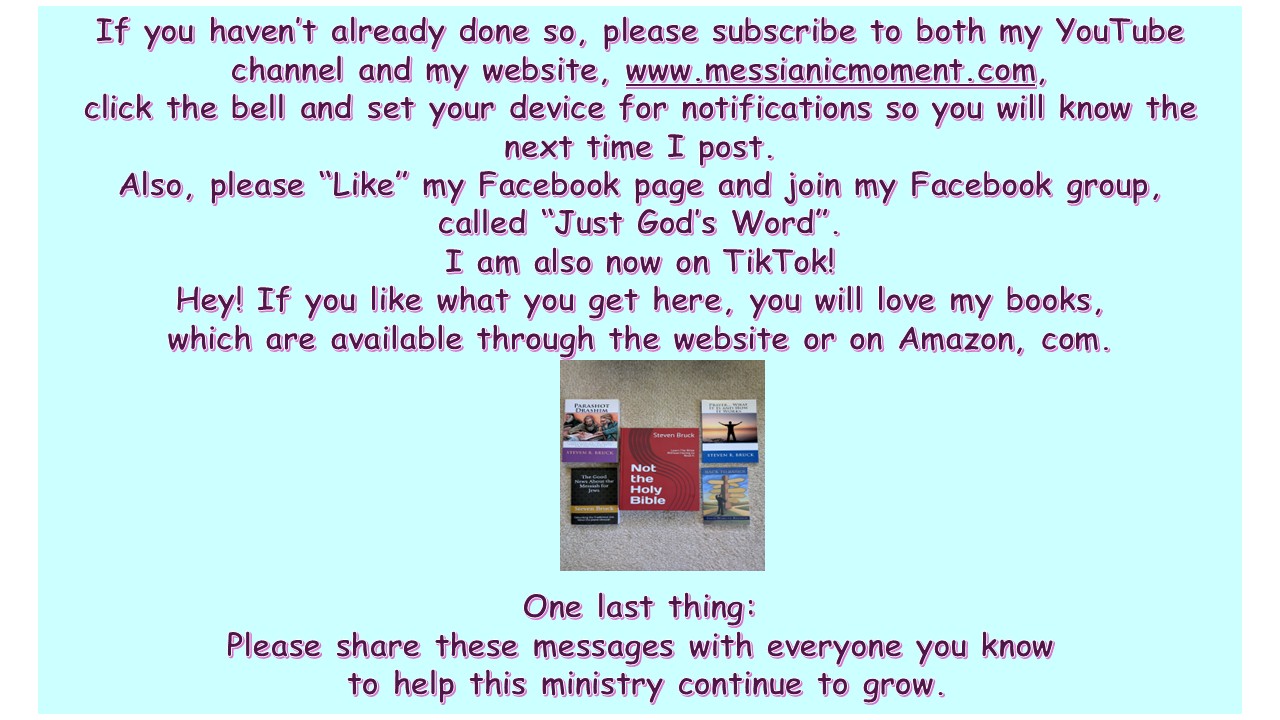We all are constantly bombarded with the Pollyanna fairy tale that all our loved ones are waiting for us in heaven, and that when we die they will all come to greet us.
Well, I have a Spoiler Alert for you!
If you prefer to watch a video, click on this link: Watch the video.

First off, the Bible doesn’t say we go to heaven- that is some man-made fantasy. What the Bible does tell us is that we will be on a new earth, where there will be peace, we will each have our own land, fruit trees, vineyards, etc. and we will be in the presence of the Almighty, forever.
Alright, yeah, that sounds like heaven, but there are no clouds, we aren’t in the sky, and no one gets wings (sorry, Clarence).
So, what’s the truth about salvation, about the afterlife in God’s presence? How many actually get there? Can we count on everyone we know and love being there, waiting open-armed to greet us?
Let’s see what the Messiah tells us; in Matthew 7:13-14, Yeshua says this:
Go in through the narrow gate;
for the gate that leads to destruction is wide and the road broad, and many travel it;
but it is a narrow gate and a hard road that leads to life, and only a few find it.
Hmmmm….that doesn’t sound very promising, does it?
The truth about the afterlife is that most likely everyone you think is waiting for you won’t be there, and if you do see most everyone you expected to be there waiting for you, you’re probably not in the place you thought you would be.
The reason I am being such a Debbie Downer here is because I want you to be in the right place- I want you to be in God’s presence, joyful and secure for all eternity. But if I propagate the Christian lies that faith is all you need because Jesus did away with the law, and if you are a good person and love others you will be in heaven with all your loved ones, well, then I would be a false teacher.
And given that God holds teachers to a much higher standard (James 3:1), I choose to burst bubbles than to blow bigger ones, and later find myself walking through a wide gate with many others on the same road.
Nope- not for me!
So, please consider that if it was easy to be saved, everyone would do it, but the Messiah, who knows what he is talking about, is telling us it is exactly the opposite!
It goes along with that old saw: if it is worth having, it is worth working for, which means if being obedient to God is hard for you to do, then you are probably on the right track.
On the other hand, if doing what you believe is obedient to God is no sweat, you’re most likely on the wrong road.
This has been a hard word to hear, and even harder to accept, but it is the truth. And if you choose to believe that fairy tale about angels, wings, harps, and that all your loved ones are waiting for you, yadda-yadda-yadda, then you are lying to yourself, to your children, and to anyone and everyone you share that lie with.
Thank you for being here, and please remember to share these messages with everyone you know, even non-believers. Hey! After all, you never know how fertile the soil is until you plant a seed in it.
That’s it for today, so l’hitraot and Baruch HaShem!


